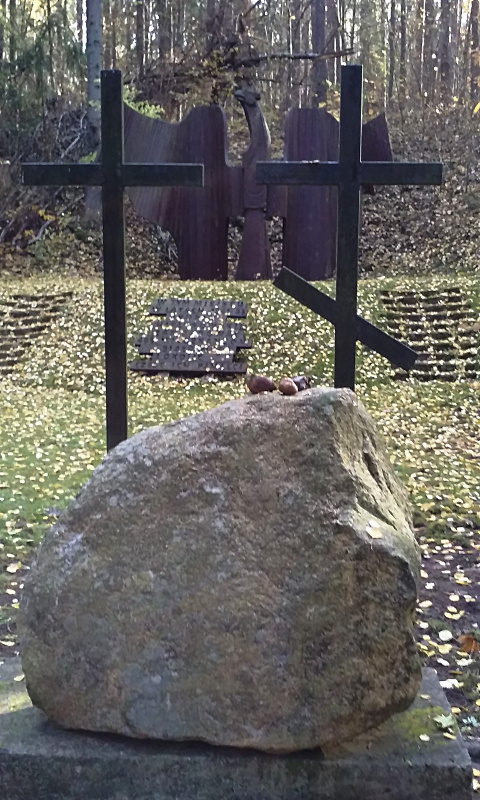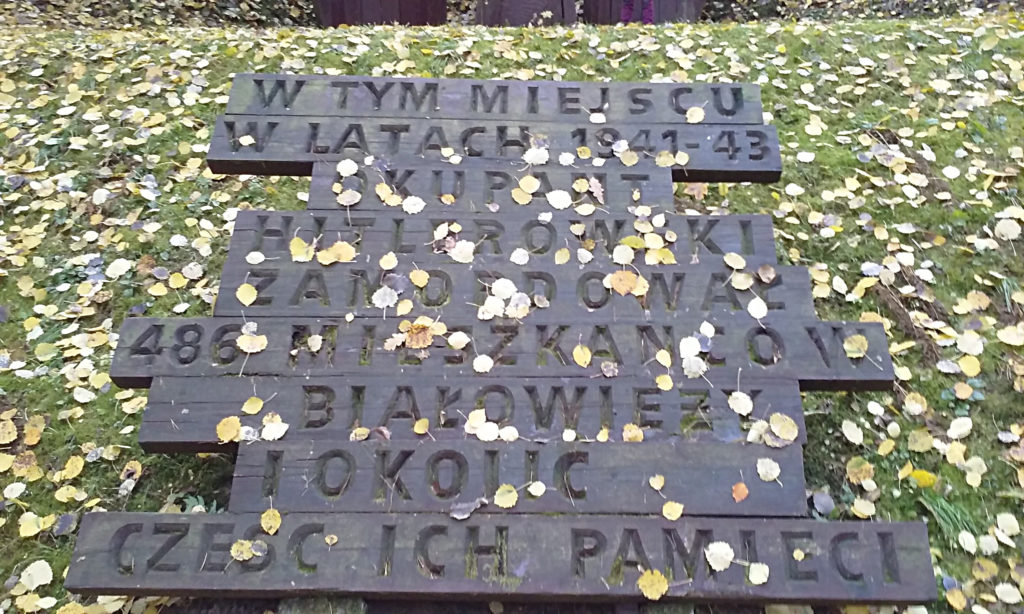The Jagiellońskie Gravel Pit (Podolany)
On the 10th of August 1941, in the place of the old gravel pit next to the village Podolany (currently a district of Białowieża), in the so-called forestry management Jagiellońskie, German soldiers from the Battalion 322 exterminated most of the male Jewish citizens of Białowieża. 77 men and boys between the age of 16 and 45 were killed.
The entry from the Battalion's journal from the days of 9th and 10th August:
"10.8.41.
7.00 Liquidation of Jews housed in the Bialowieza prison assembly camp. 77 male Jews aged 16 to 45 shot. 5 Jewish tailors, 4 Jewish cobblers and 1 Jewish watchmaker were not shot since their labour was urgently requaired by the company.
["The Good Old Days": The Holocaust as Seen by Its Perpetrators and Bystanders red. Ernst Klee,Willi Dressen,Volker Riess, 11].
Teodor Gnieszew recalls: „I saw how they loaded the Jews into two cars, and they drove them all to the forest. They killed them all the forest, at the gravel pit, and they threw them into the ground. They put a warning sign in that place, with signs in Russian, Polish and German, saying that entry is forbidden”.
Among the people shot on the 10th of August were: Alek [likely someone with a surname Alkon], Bursztyn (Bursztejn), Cynamon, Góra, Grabski, Heller, Icek, Krugman, Machman, Malecki, Narban (probably someone from the family Norba), Nowokolski.
Poles, Belorussians, Russians and Jews from other towns were also murdered in the gravel pit. 486 people died in that place between the years of 1941-1943. On the place of their extermination
stands a memorial statue in the shape of an eagle, and a commemorative plaque. The signature says:
"In this place in the years of 1941-1943, the Nazi occupants murdered 486 inhabitants of Białowieża and its surroundings. Honour their memory."




